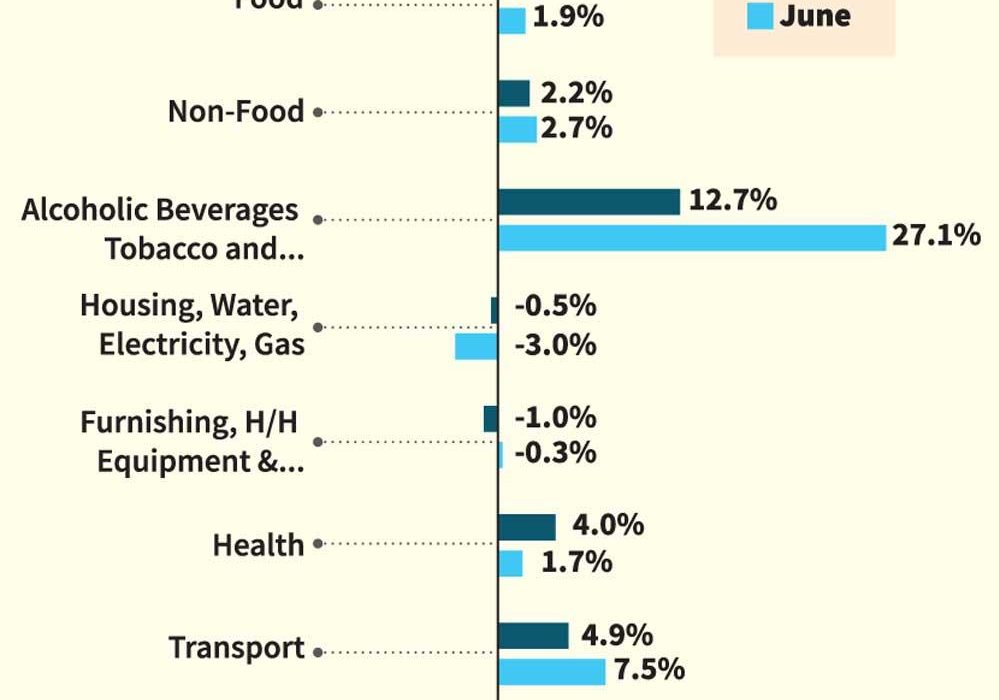National consumer prices in Sri Lanka saw a slight increase in July, rising by 2.5% compared to the same month last year. This marks a modest uptick from the 2.4% increase observed in June, as the high base effects from the previous year began to dissipate.
Despite this year-on-year rise, prices for many food and non-food items fell, with non-food prices notably declining due to reductions in energy and utility costs. On a monthly basis, national prices fell by 0.6% in July, following a 0.9% increase between May and June.
The Central Bank of Sri Lanka reiterated its confidence in keeping inflation below 5.0% through the first quarter of next year, referencing the Colombo Consumer Price Index (CCPI), which recorded a 2.4% increase in July, up from 1.7% in June.
Core national prices, excluding volatile items, slowed to 3.0% in July, down from 3.9% in June. Meanwhile, food prices recorded a 2.9% increase over the 12 months through July, up from 1.9% in June. Monthly food prices also slowed significantly, rising just 0.5% in July compared to a 2.4% increase between May and June.
Non-food prices increased by 2.2% year-on-year in July, down from 2.7% in June. However, on a monthly basis, non-food prices fell by 1.4% in July, marking the steepest decline since March. This drop was driven by government cuts to electricity tariffs and reductions in fuel and gas prices.
With inflation posing minimal risk under current economic conditions, the Central Bank cut key policy rates by 25 basis points in July, signaling its commitment to a monetary easing path. The Central Bank’s indication that inflation will remain below the 5% medium-term target reinforces its ability to continue this approach.
